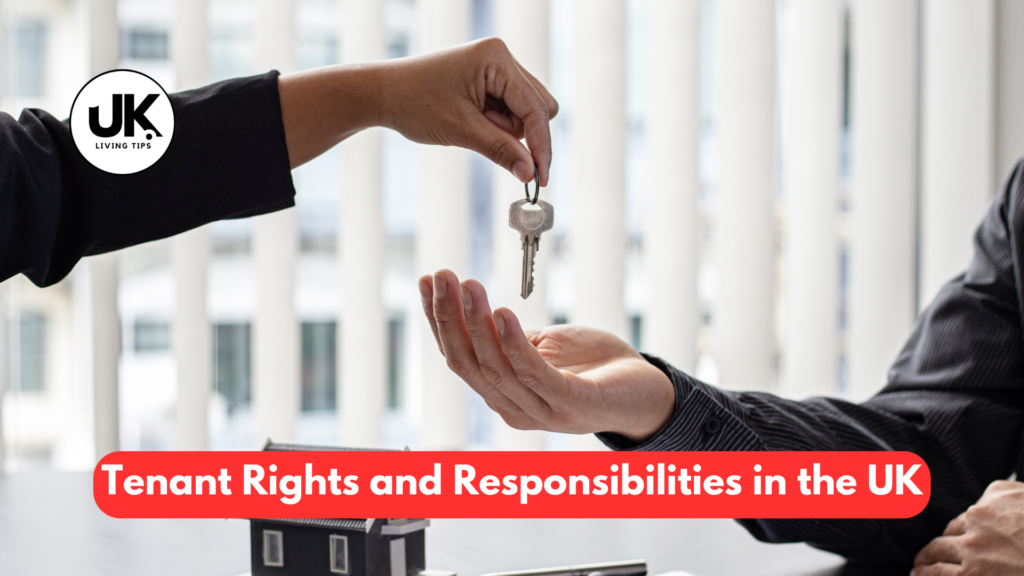Tenant Rights and Responsibilities in the UK: Renting a home can feel like a bit of a maze, especially with all the rules and regulations. But don’t worry! In 2024, understanding your tenant rights and responsibilities can help you navigate the rental world with confidence. Let’s break it down so you know exactly where you stand.
Tenant Rights and Responsibilities in the UK
Current Legislative Framework
Things have changed in the rental world recently, and knowing these updates can make a big difference. Here’s a quick look at what’s new in 2024:
- The Renters (Reform) Act 2023: This new law brings stronger protections against unfair evictions and improves the standards landlords must meet.
- The Housing Health and Safety Rating System (HHSRS): This system continues to ensure your home is safe and in good condition.
- The Tenancy Deposit Scheme: This scheme has been updated to make it easier to get your deposit back when you move out.
Overview
Tenant Rights in 2024
Right to a Safe and Livable Home
You have the right to live in a place that’s safe and well-maintained. Your landlord must:
- Maintain the Property: This means keeping everything in good shape, like fixing leaks or ensuring the heating works properly.
- Make Necessary Repairs: If something breaks, like the boiler or plumbing, your landlord should sort it out quickly.
If your home isn’t meeting these standards, you have every right to ask for repairs. If your landlord doesn’t act, you can contact your local council or get legal advice.
Read also: Health and Care Worker Visa in the UK in 2024
Right to Privacy
Your home is your private space, and your landlord needs to respect that. Here’s what you should know:
- Notice for Visits: Your landlord must give you at least 24 hours’ notice before entering your home, unless it’s an emergency.
- Protection Against Harassment: Your landlord can’t harass you or enter your property without permission.
If you feel like your landlord is intruding or being unreasonable, make a note of what’s happening and consider seeking advice from local authorities or a legal professional.
Right to Fair Treatment
You shouldn’t be treated unfairly, and laws are in place to protect you:
- The Equality Act 2010: This act prevents discrimination based on race, gender, disability, and other characteristics.
- Handling Unfair Treatment: If you think you’re being treated unfairly, you can file a complaint or seek mediation to resolve the issue.
Right to Challenge Rent Increases
Rent increases should be reasonable. Here’s how you can handle them:
- Legal Limits: There are rules about how much and how often your rent can go up.
- Challenge an Increase: If you think an increase is too high, you can request a review through the First-tier Tribunal (Property Chamber).
Tenant Responsibilities in 2024
Paying Rent
As a tenant, you need to:
- Pay On Time: Make sure your rent is paid on time to avoid any issues. Late payments can lead to extra charges or even legal trouble.
- Keep Records: Always keep proof of your payments, just in case any issues come up.
Maintaining the Property
You’re also responsible for:
- Keeping It Tidy: Regular cleaning helps keep the property in good shape.
- Reporting Problems: Let your landlord know about any issues as soon as they come up to prevent them from getting worse.
Respecting Neighbours
Being a good neighbor is important:
- Manage Noise: Keep the noise down, especially late at night.
- Resolve Disputes: If you have problems with your neighbors, try to handle them calmly and seek mediation if needed.
Following the Tenancy Agreement
Make sure you:
- Understand Your Agreement: Know the rules about pets, smoking, and other issues.
- Follow the Rules: Not sticking to the agreement can lead to penalties or even eviction.
Handling Disputes and Complaints
Dispute Resolution Services
If disputes arise:
- Mediation Services: These can help you and your landlord come to a resolution.
- Arbitration: An arbitrator can make a binding decision if mediation doesn’t work.
Legal Recourse
When mediation or arbitration doesn’t resolve the issue:
- Seek Legal Advice: Consult a solicitor who specializes in tenancy law.
- Legal Action: Sometimes, taking legal action is the only way to resolve serious disputes.
Ending a Tenancy
Notice Requirements
When it’s time to move out:
- Give Proper Notice: Follow the notice period outlined in your tenancy agreement, usually one or two months.
- Ending the Tenancy: Ensure you return all keys and leave the property in good condition.
Deposit Returns
To get your deposit back:
- Leave the Property in Good Shape: Clean up and fix any damage, barring normal wear and tear.
- Dispute Resolution: If there’s a problem with your deposit, use the Tenancy Deposit Scheme’s dispute service.
Future Trends in Rental Law
Upcoming Changes
Looking ahead:
- New Laws: Stay tuned for any new laws or updates that could affect tenants.
- Potential Impact: Future changes might offer more protections or bring new responsibilities.
Conclusion
Understanding your tenant rights and responsibilities in 2024 is key to a smooth renting experience. With recent changes in the law and ongoing updates, being informed will help you avoid problems and make the most of your rental arrangement.
FAQs
- What should I do if my landlord isn’t making necessary repairs?
- Document the problem, notify your landlord in writing, and if needed, contact your local council or get legal advice.
- How can I challenge an unfair rent increase?
- Request a review through the First-tier Tribunal (Property Chamber) if you think the increase is unreasonable.
- What are my rights if my landlord enters my property without notice?
- Your landlord must give at least 24 hours’ notice. If they don’t, it may be considered harassment.
- How do I ensure I get my deposit back when I move out?
- Leave the property in good condition, follow the tenancy agreement, and use the Tenancy Deposit Scheme’s dispute resolution if needed.
- What should I do if I have issues with my neighbors?
- Try to resolve any issues calmly and seek mediation if necessary.



